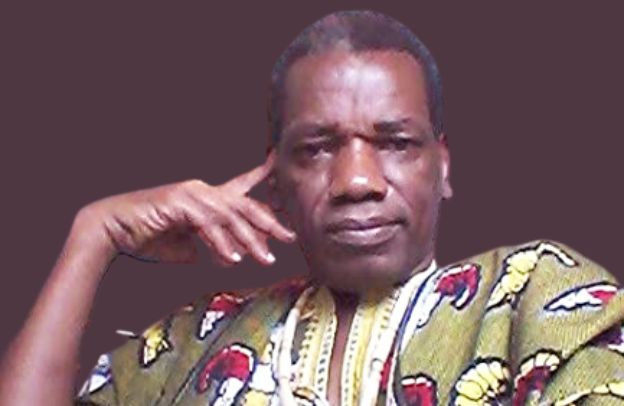Religion And Spirituality in Ancient Kemet with Dr. Kiatezua Lubanzadio Luyaluka

In this episode of Obehi Podcast, we are going to be reflecting on Religion and spirituality in ancient Kemet with Dr. Luyaluka. What does ancient Kemet believe and how is that related to other parts of Africa? That is an argument that is particularly important if you are interested in knowing about African spirituality.
Download the first chapter of The Storytelling Series: Beginners’ Guide for Small Businesses & Content Creators by Obehi Ewanfoh.
What do you know about Religion And Spirituality in Ancient Kemet
Religion and spirituality played a significant role in Ancient Kemet (Egypt). Kemet was a polytheistic society, meaning they believed in multiple deities or gods. These gods represented various aspects of nature, such as the sun, the river Nile, and the sky.
The ancient Kemetic religion was centered around the idea of Ma’at, which represents order, balance, and harmony. The Kemetics believed that their gods and goddesses were responsible for maintaining Ma’at and preserving the natural order of the universe. The Kemetics also believed that they had a duty to maintain Ma’at in their everyday lives by living in harmony with the world around them.
The Kemetics believed in an afterlife, and they believed that the soul was immortal. They believed that the soul would continue to exist in the afterlife, where it would be judged by the god Osiris. The Kemetics believed that if a person had lived a virtuous life, they would be rewarded with eternal life in the afterlife. However, if a person had lived an immoral life, their soul would be destroyed.
The Kemetics also had a complex system of rituals and ceremonies that were performed to honor their gods and goddesses. These rituals included offerings of food, drink, and incense, as well as the recitation of prayers and hymns. The Kemetics also believed in the power of magic and used it to protect themselves from harm and to help them achieve their goals.
Spirituality was also an essential part of ancient Kemetic society. The Kemetics believed that the natural world was imbued with spiritual energy, and they practiced various forms of spiritualism, including meditation and divination. The Kemetics also believed in the power of dreams and believed that dreams could provide insights into the future.
In conclusion, religion and spirituality played a significant role in ancient Kemet, shaping the Kemetic worldview and influencing their daily lives. The Kemetics believed in multiple gods and goddesses and practiced a complex system of rituals and ceremonies to honor them. They also believed in the power of magic and spirituality and had a strong belief in the afterlife.
Some Key Points In This Episode
- Is the Religion and spirituality in ancient Kemet different from other parts of Africa?
- Is the ancient Kemet Religion a form of paganism?
- What do we know about the origin of the ancient Kemet Religion?
The Full Interview with Dr. Luyaluka
About The Guest: Dr. Luyaluka
After architectural studies and a brief career in Christian Science teaching and lecturing, Dr. Kiatezua Lubanzadio Luyaluka earned a Ph.D. (Honors) degree in Apologetics from Trinity Graduate School of Apologetics and Theology of Kerala, India.
Based in Kinshasa, DRC, Dr. Luyaluka is currently the Director of NZIL’ALOWA, a center devoted to solar renaissance as the recourse, even return, of Africans to the traditional epistemology and spirituality that marked the success of ancient Egypt and precolonial south-Saharan civilizations.
NZIL’ALOWA comprises a research center called Institut des Sciences Animiques and an Initiatory branch that introduces Africans, i.e., Blacks, to the practice of African Divine Science, which implies spiritual healing and fighting witchcraft.
As a researcher, Dr. Luyaluka has published more than 25 scientific papers and authored 14 books on African spirituality and epistemology. His major scientific contributions to academic knowledge include:
- The first statement of a systematic natural theology. It shows that the core corpus of the religion of ancient Egypt, Sumer and Kôngo culture is a set of deductive coherent statements, an exact science. This implies that in its original from the African traditional religion is also an exact science!
- The simplest « theory of everything », the easiest mathematical explanation of gravitation at the astronomic and subatomic levels resulting from the cosmology of African traditional religion.
- The first statement of the naturalized epistemology of African traditional knowledge. It demonstrates that African traditional knowledge is a science based on posterior truts.
Dr. Luyaluka is currently one of the leading scholars in the field of African traditional religion, especially in the domain of Bukôngo or kôngo religion.
You can reach Dr Kiatezua Lubanzadio Luyaluka on his Website – www.nzilalowa.com
Learn More About Obehi Podcast
Obehi Podcast brings you leaders and experts from different industries to share their experiences, relating to Africa and the African diaspora. Listen to Obehi Podcast across different platforms: Spotify, Apple Podcast, YouTube, and much more.
Download the first chapter of The Storytelling Series: Beginners’ Guide for Small Businesses & Content Creators by Obehi Ewanfoh.




